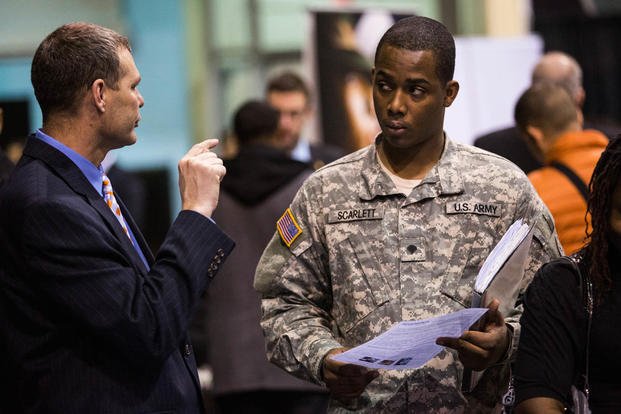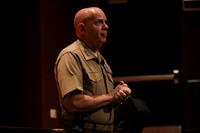Brad Wenstrup is the U.S. representative for Ohio's 2nd Congressional District and a colonel in the U.S. Army Reserve.
I still remember the eerie serenity of home life after returning from the battlefield. I remember the strange lightness of walking around without body armor for the first time in months. That feeling of safety, of being so far removed from the war that it seemed a world away.
These are small adjustments, among the thousands that service members face every day once they come home, and often for many years into the future.
My own transition back to civilian life was much easier than it is for many others because I was returning home to an established medical practice, where I had already worked for years. For those who don't have a clear-cut path upon their return home, there is often a struggle with what I call "post-essential stress."
This is my term for the feeling of going from being essential to your team -- part of a mission, part of something bigger than yourself -- to coming home to a job where you may not have that same feeling. Or worse, not being able to find work at all. Adjusting to this new reality, where your unique skills and experiences don't always seem to transfer, can take a toll on you.
That's why I believe that it is so important that we -- the American public and our elected officials -- offer support to our men and women in uniform not just with our words, but also with the tangible actions that give those words teeth.
Our countrywide commitment should begin the day our troops don our nation's uniform and should continue through their re-entry into civilian life. Our efforts toward our troops should not misperceive them as victims, but rather recognize them for what they are: value-adds to our communities. Indeed, that desire to be essential makes our veterans valuable assets to all of us.
One way I believe we can do better is by helping our service members plan for the transition back to civilian life earlier, when they first join the armed forces. Imagine if recruiters not only asked what a new recruit plans to do when they enter the military, but also paused to question what they plan to do afterward. That could be the first step in empowering service members to plot a successful course for their lives both in uniform and out of it.
Recently, the president signed the John S. McCain National Defense Authorization Act (H.R. 5515), which included provisions to modernize our curriculum for those going through the Transition Assistance Program to ensure the information they receive is timely and specific to their individual needs.
Additionally, our commitment to those who put their lives on the line defending this nation must continue throughout the entire process of reintegrating into civilian life. One of the best ways to help ease this transition is by prioritizing programs that help veterans find meaningful employment or education opportunities even before they return home. Unfortunately, the outdated structure of the Department of Veterans Affairs has allowed economic opportunity and transition programs for our veterans to fall by the wayside for too long. We're working to change that.
To promote more opportunities, the House passed the Long-Term Care Veterans Choice Act (H.R. 5693) in July. This bill includes my legislation to prioritize educational, employment and transition programs within existing VA resources. The goal is to create greater opportunities for our veterans, ensuring they have access to the benefits and opportunities they have earned with their service.
Another recent victory for our veterans occurred in June, when President Donald Trump signed the VA Mission Act (S. 2372). This bill does several important things, including simplifying and expanding access to care in the community when needed, evaluating VA assets and shortfalls, expanding home caregiving, enhancing recruiting, and retaining in-demand surgical specialists.
Each of these recent actions are steps toward better fulfilling our commitment to America's heroes, but we do still have a long way to go.
So whenever we recognize and thank those who served -- whether it is with parades or ceremonies or social media posts -- let's not stop with that. When you thank a veteran for their service, ask them what they did. Each of them, in their own unique way, carved out their own chapter in American history. Their actions have earned our acclamation.
Supporting those who served us is more than just a nice thing to do. It is our obligation.
-- The opinions expressed in this op-ed are those of the author and do not necessarily reflect the views of Military.com. If you would like to submit your own commentary, please send your article to opinions@military.com for consideration.















